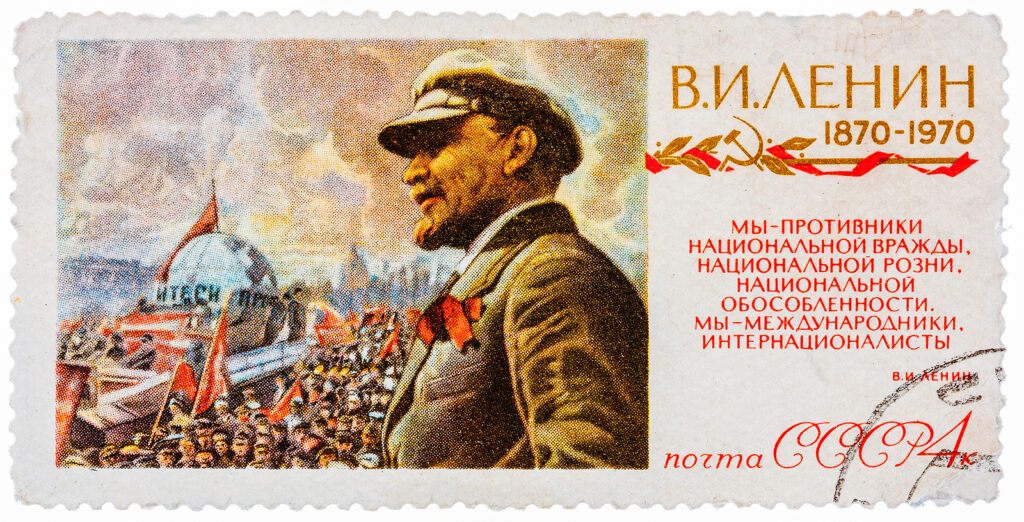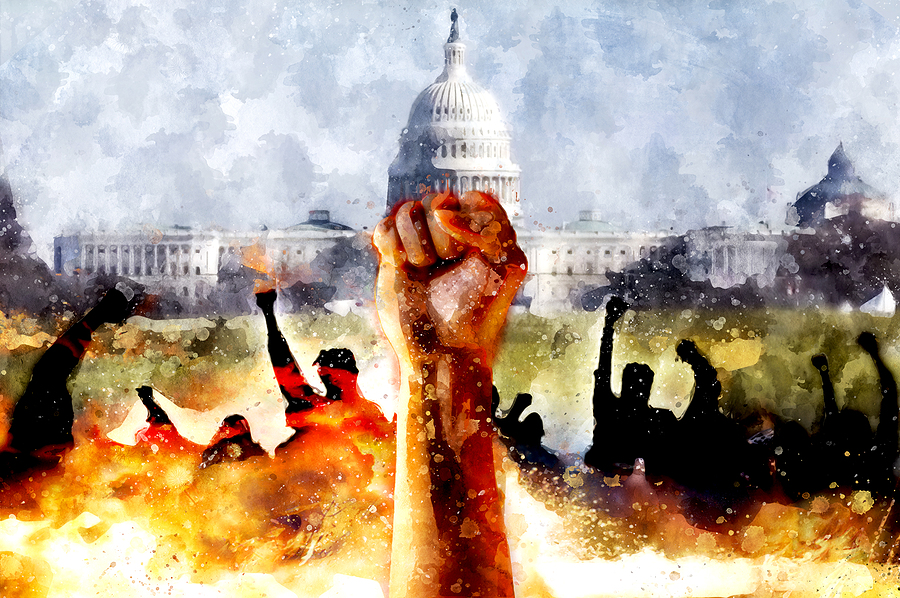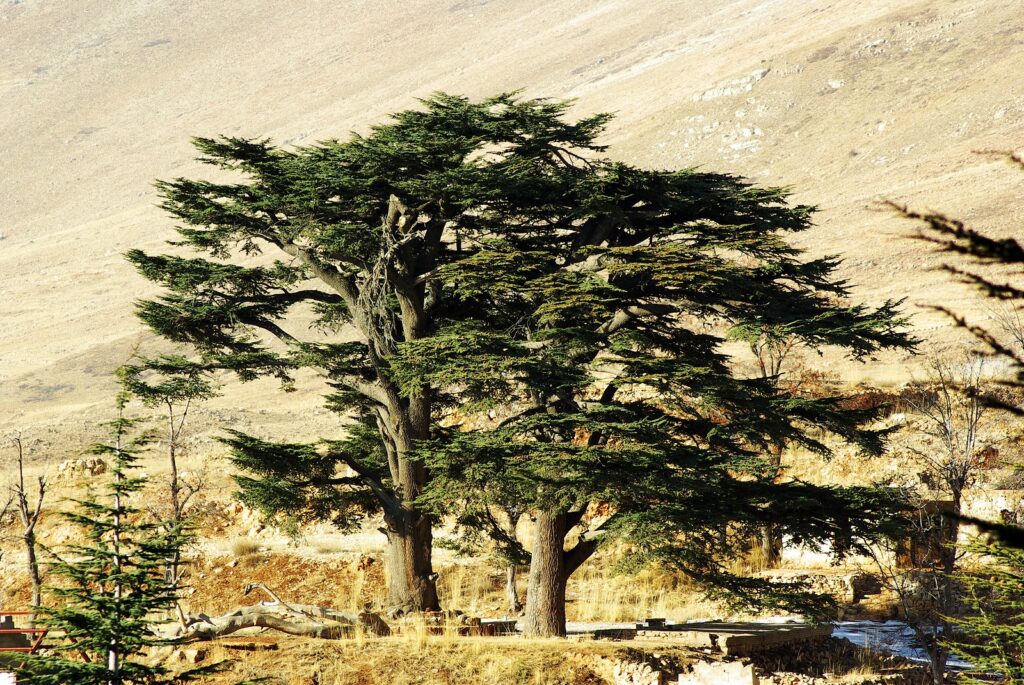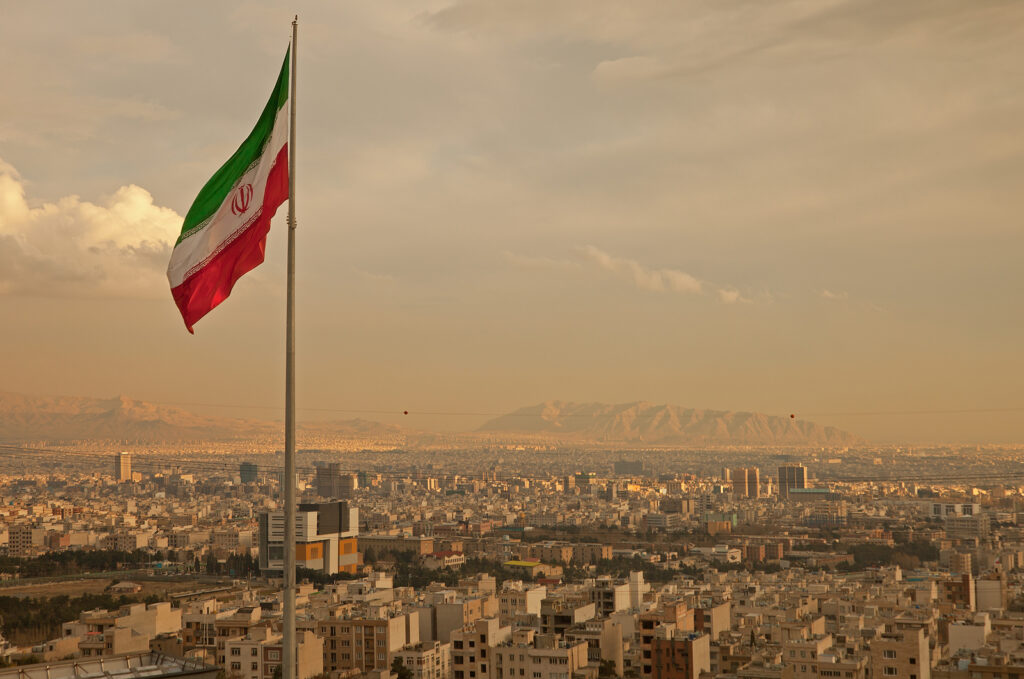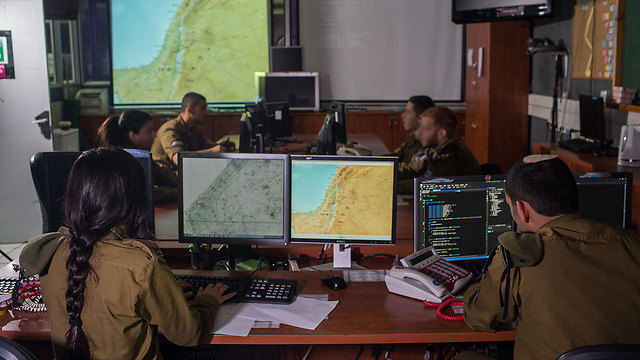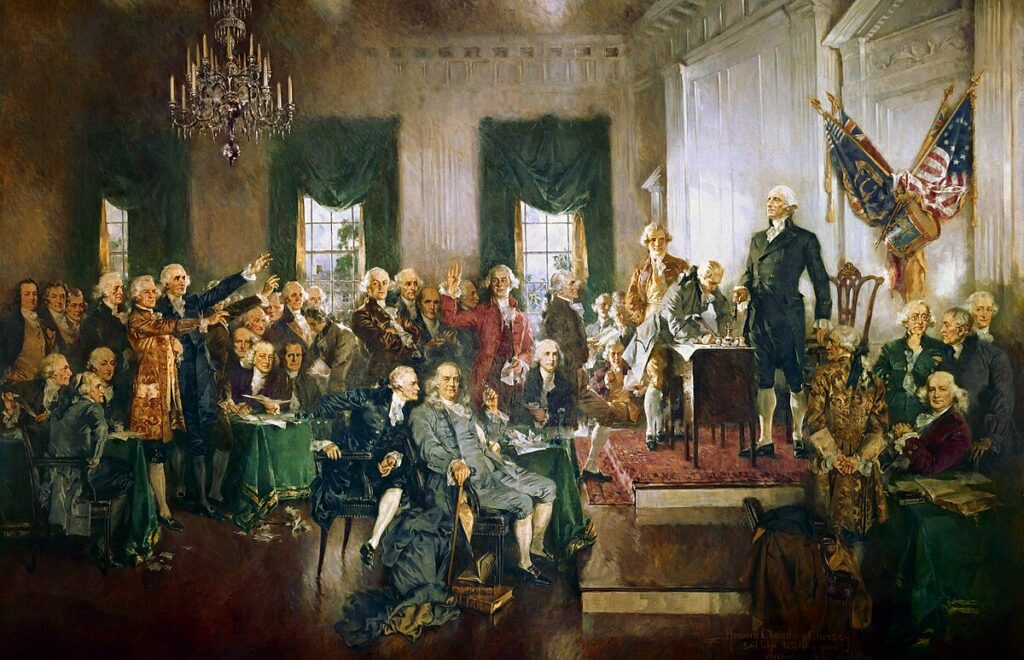I
In our twenty fifth issue, we at Hashiloach published an article on the issue of the Bedouin in the Negev. This is undoubtedly one of the most serious problems facing Israel in recent years: a population, suffering from poverty and lack of opportunities, which systematically works against the law, often with violence, living in unrecognized villages and managing an independent and lawless land regime. We sought to understand the underlying story: why so many years of efforts have borne so little fruit, why settlement attempts by the state have collapsed one after another, whether government budgets for various advancement programs, from literacy to housing, actually bring benefit, and how a population which was not reared on the Islamic-Palestinian narrative has wound up becoming so hostile to the state of Israel. We wanted an article that would remove the fog of disinformation and present us with the most accurate picture of why this problem isn’t being solved.
Akiva Bigman took up the gauntlet, providing us with a larger view of the situation in an in-depth, wide-ranging article. What’s been done and what’s fallen through, which accounts are true or false, who possesses ownership of the land, and why the state-funded permanent residences end up remaining empty. One thing became particularly apparent and troubling: the extent of organized crime, and the police’s attitude towards it. It turns out that the goodwill of both the government and Bedouin society, even accompanied by big budgets and grandiose programs, simply was insufficient in the face of dominant crime organizations in the sector, who are invested in preserving the favorable status quo of the region. These criminal gangs threaten activists promoting change, presenting them as detestable “collaborators,” and violently sabotage government and regional investments which might bring the Bedouin population a lot of benefit.
As for the police, they often prefer to maintain functional “working relations” with the large crime organizations rather than seriously prosecute them, limiting their enforcement to weak or small fry criminals. These crime organizations, the police believe, help in creating “industrial quiet.” The police possess neither the energy nor the courage to fight them effectively, and therefore prefer to let them operate in peace, even working with them on a quid pro quo basis. In short, this is a protection racket: surrender to powerful and violent people so that they themselves are not harmed, and in the process, restrain themselves and others from further undermining the existing order.
Ostensibly, this is a reasonable tactical decision to make: The police need to understand their priorities and avoid entering wars they cannot win. But, in truth, this is not a tactical decision, but rather a dangerous and immoral one. One which empowers destructive forces while weakening law-abiders and enforcers. And indeed, as we can see in the article, this “small” decision led to a chain reaction that has prevented any possibility of positive societal change for the Bedouin. So long as the local state authorities do not dare clash with Bedouin crime organizations, nothing will change, and the plans, budgets, and hopes of the Israeli government will continue to be poured like sand, only to be blown away in the same fashion.
In such a culture of protection, criminal conduct has no limit. Everyone has likely encountered pictures and clips of the marijuana hothouses grown by Bedouin within IDF training grounds, which constitutes a systematic violation of a bevy of laws, from those protecting land rights, to national security laws, to drug laws. We are also all familiar with the thefts from IDF camps—and the fact that they are often done in broad daylight and in large groups of brand new all-terrain vehicles. This daring and brazenness in flouting the law is a clear consequence of the Bedouin understanding who’s actually in charge in the Negev—and who the police will not dare deal with.
It is of course not just a matter of the Negev or the Bedouin. Playing out parallel to these incidents, the Galilee saw itself burning from the smell of cop cars on fire, parked next to the private home of police officers. This terrifying reality was the result of brave and unique efforts from the Israeli police in fighting a protection-extorting gang that had been operating for years from Tuba Zangaria.
But this particular brave effort cannot change the miserable larger reality. This is a reality which has been going on for many years, leading, among other things, to the establishment of the HaShomer HaChadash in 2007, on the understanding that Israeli farmers are effectively being left to their own devices in dealing with extensive agricultural crime, with very minimal tools or support given.
The rising violence in the Arab sector, which has hit the headlines hard in recent years, is thus undoubtedly the consequence of a deep failing on the part of law-enforcement authorities in Israel. If the problems are well-known – such as the enormous amounts of illegal arms possession – and have existed for years while still remaining unsolved, we can only assume that the reason is not operational or budget related, but rather, an unwillingness to act aggressively and systematically against the phenomenon, for fear of harm from those powerful criminal entities which the government finds it more convenient to deal with.
II
This lack of action is not a problem that stems solely from the police, but rather from the senior political leadership in the State of Israel. When other matters are prioritized on the national scale, leaders may opt to sustain protection policies on issues they don’t have the strength to deal with, which they can’t solve, or for which they are unwilling to pay the price of tackling.
Netanyahu has chosen for years to focus his undoubted skills as a leader on opposing the Iranians and advancing Israel’s international status. By contrast, when it comes to the domestic sphere—education and social relations, religious character and internal security—he has been negligent. And how does one become negligent? By simply leaving the situation in the hands of those already empowered, whether acting by legitimate right or by illegitimate might, and avoiding any action which might undermine the existing balance of power—a course of action which would require determination and leadership.
This is evident in the automatic submission to the ultra-Orthodox – and sometimes precisely to the most extreme and forceful elements within them – regarding anything related to the Jewish affairs in the state. And it is even more evident, and significantly so, in the behavior of the police force we described earlier. “If it works – don’t touch it,” says this logic of neglect; but at a certain point, it not only stops working, but it also reveals that beneath the blue and white flag, a Sodom has grown: a land that devours its inhabitants.
What has recently transpired in Israel, during the operation ‘Guardian of the Walls’, testifies to the depth of the decay. The accumulated testimonies from various locations throughout Israel, spanning from the Galilee down to the Negev, all indicate a consistent pattern: a surrender to violence and an evasion of conflict.
Jews in the Galilee, living in areas where their Arab neighbors rioted, such as the Misgav Regional Council, were instructed by the police to impose a self-curfew: to return home early and not to leave their communities until the following morning; and this was not for just one difficult-to-plan-for night, but for a long series of nights. This method indeed deprived the Jews of their freedom – but “quiet” was maintained: there were no casualties, and the harsh reality was almost not exposed in the media. In another case, it was revealed that commanders instructed their soldiers not to travel in uniform through a major transportation artery in Israel, Nahal Iron Road, which passes by Umm al-Fahm. Jewish-owned vehicles were also attacked at many other junctions in Israel, both in the Galilee and the Negev, and in several cases, innocent passengers were rescued from near-lynchings at the last moment, solely by their own resourcefulness or the intervention of passersby.
And of course, what happened in Lod must not be forgotten: for many days, a war, or perhaps pogrom, was conducted against Jewish residents, including mob attacks, stone and Molotov cocktail throwing, arson and even live fire—sometimes right into the windows of the citizens homes. Schools and synagogues were set on fire, cars were burned, and pedestrians found their lives in real danger. All of this happened in broad daylight and with a flood of desperate requests to the police, who knew of all of these occurrences, but simply chose not answer a significant number of the calls, leaving those attacked to their attackers’ mercy and forcing the community into necessarily organizing its own defense and calling for volunteers from across the country.
Time and again, descriptions have been heard that illustrate how that same police force, which was absent from the scene when an Arab mob attacked Jewish homes, suddenly emerged with determination and presence against Jews who came to the city to help defend it; in the city, it was even assessed that part of the police’s conduct was related to the fact that the Arab who was shot and killed by a Jew, in a clear act of self-defense, was the son of the wealthiest and most powerful family among the Arabs in the city. Whether this suspicion is correct or not, the facts are inescapable: the police failed colossally in fulfilling their role of defending public order and the peace of the citizens, due to a lack of willingness and ability to confront the violence coming from the Arab side, which possesses a large amount of illegal weapons. The embarrassing attempt by the Police Commissioner to present the police’s failures – those who simply stood by in the early days – as a “success,” and to blur the tragic reality of Arab riots against Jews as merely “violent sides” that the police “separated” between, only exacerbates the failure.
As with any culture of protectionism, it also became clear beyond any doubt that violence is the victor.
III
Sometimes protectionism is submission, and sometimes it is a strategically or tactically chosen solution. This appears to be the case with the Gaza front. Since Israel is not willing to deal with the Gaza Strip and manage it again, it opts to reconcile with Hamas’ rule over it, even though it is a terrorist organization aiming to destroy Israel and subjugates the residents of the Strip to its extreme agenda. And when one desires Hamas’ rule, just as one desires the “calm” offered by major crime organizations, one must accept their terms – and forfeit moral principles. To relinquish the basic principle of the state’s commitment to the security of its citizens – yes, even those living in the areas bordering the Gaza strip – and to actualize the protection deal in the most tangible and degrading manner: systematically transferring suitcases full of money to an organization that awaits the moment it can kill your citizens.
The bitter chronicle of protectionism against Hamas does not begin, of course, with the Qatari money suitcases, but with what appears to be the most severe moral failure of Netanyahu’s governments: the Shalit deal, in which we paid with the blood of future victims to redeem a soldier, while reconciling with Hamas’ brutal conduct regarding captives and missing persons. This reconciliation is also reflected in the consistent avoidance by the government, despite explicit commitments, from exerting humanitarian pressure on Hamas concerning the return of soldiers killed in Operation Protective Edge; Israeli governments have released prisoners, transferred medicines and vaccines, and so on, without conditioning these on the return of our sons – so as not to confront Hamas excessively.
The choice of the protectionism route so as to not deal with a problem that lacks an easy solution may constitute a reasonable decision on a temporary basis, but its regular and more permanent adoption creates true malignancies which can ultimately not be avoided. Making peace with the Chinese water torture of long years in which an entire region of the country raises its kids under threat exacts a cost – and harms, first and foremost, the deterrence of the State of Israel and its national resilience, especially when this is wrapped in a thick layer of “pretend and deflect.”
I did not read the book which Netanyahu wrote on how the West needs to deal with terrorism. But I have no doubt that it says first and foremost that we cannot surrender to its demands or delude ourselves that satisfying these demands will bring about peace. This, says the doctrine of fighting terror, is surrender to the ideology of protection, which only strengthens the enemy and weakens our struggle against it. We need to do the opposite: fight terror uncompromisingly, rather than consider it a partner in dialogue and negotiations—just as one should deal with organized crime, and as Israel taught the entire world in 1976, when it freed the captives in the Entebbe raid.
IV
Indeed, as the history of protectionism and of criminal struggles in general teaches us, reaching an arrangement of compromise can temporarily lead to a beneficial peace, but when it comes to unjustified surrender to hostile and violent forces, it leads not to peace, but rather invites greater violence.
Perhaps more than anything else, what happens on the Temple Mount, the heart of the conflict, and the collapse of the protection strategy there demonstrates the negative impact of surrender.
The Temple Mount is the holiest site of the Jewish People, but it is also a holy place for Islam, and a central religious symbol for Israeli Arabs. Indeed, in accordance with the promises of the Declaration of Independence and Israeli society’s liberal character, Israeli sovereignty never led to limitations on Muslim prayer on the Mount, or even the taking of power away from the Waqf. Israel, it turns out, was always “more Catholic than the Pope” on this matter.
Unfortunately, the Temple Mount is also the place where the State of Israel conducts itself based on fear and surrender to forces threatening it with riots. Not only does Israel avoid displaying its flags on the Mount and even considers such an action to “endanger public peace,” it has also made the Mount the only place in the country where Jewish freedom of worship is restricted, with the systematic and regular violation of Basic Law of Human Dignity and Freedom. The excuse for violating the law–and not just some bylaw, but a Basic Law, and not in some marginal section but at a key point that couldn’t be more central, and not temporarily but on a regular basis–is the classic excuse given for paying protection: preferring “public order” over adhering to basic values. In other, blunter terms: some people you don’t piss off.
Israeli policy on the Mount has made peace with many other legal violations, including those with dramatic consequences. Extensive work by arabs on the Mount not only violated the Antiquities Law, but also destroyed – perhaps even deliberately – archaeological treasures which will now never be known. Israeli governments have avoided enforcing the matter, preferring instead to protect its relationship with the Waqf and the Jordanians as much as possible. It gave up on weapons checks for those entering the Mount (the metal detectors), just as it gave up on enforcing Corona rules-–even when thousands of people ascended the Mount, in a gathering of the sort which was then a flashing red light for Israeli health authorities in their enormous efforts to stop the virus.
The cowardly, illegal, and submissive surrender of Israeli governments on the Temple Mount over the years has never led to the Muslim world showering us with thanks for the deep respect Israel has shown for al-Aqsa. To the contrary: everything Israel takes pains to avoid doing has become exactly what it does do in the eyes of false Palestinian propaganda: limits the Muslims, seeks to destroy al-Aqsa, and promotes the building of the Jewish Temple on its ruins. Thus did we end up with the very ascent of a Jewish politician to the Temple Mount becoming the trigger for the mass riots that became the al-Aqsa Intifada, while the same Ramadan which the Israeli regime used to prevent Jews from coming close to the Mount and the city at the peak of Jerusalem Day turned into the day which set the country alight, once again on the grounds that the Jews are harming al-Aqsa. In a reality where Israel willingly gave up any effective control of the Mount, even the necessary entry of police forces onto the Mount to prevent preparations for breaches of the peace has become “serious harm to the holy ground of Islam” –and justification for the start of another wave of violence against Jews.
V
It seems that the horrifying civil war that erupted here during the “Operation Guardian of the Walls” teaches us that we have no choice but to free ourselves from the comfort of protection deals. If we had paid attention, we should not have been surprised: the war surfaced exactly those unresolved issues that weigh on Israel’s great successes: the issue of the Bedouins in the Negev; the violence in the Arab sector; the south that has been under fire for many long years. All these wounds suddenly festered and bled.
But can Israel act differently? Is our public ready for ‘blood, toil, and tears,’ and do we have a leader who can transition us from a culture of ‘immoral calm’ to a culture of bold decision-making?
The question of public resilience is a serious one. Israeli society has gotten used to the comfort of denial, and large swathes have cast aside the ethos of justified struggle in favor of normalcy. The worrying trend revealed during the riots to seek out the “settlers” or the “Torah groups,” may ultimately derive from this: for those who are sick of the struggle, to the point of self-delusion instead of recognizing reality, these groups symbolize evil—not because of any deeds, but because they do not adopt the “illusion of normalcy,” and continue to cultivate a conception of Zionism as a demanding and ongoing project.
But there is a substantial public sector which recognizes the importance of this struggle, and would perhaps be willing – as in wartime – to pay the heavy costs required to back a leadership that chooses to stop the paying of protection. A leadership which arouses trust, and whose moves will be understood by the public as aiming for root treatment of weeds that have been left to spread amongst public infrastructure.
Do we have such a leadership? Or the potential for such a leadership?
Binyamin Netanyahu is undoubtedly the greatest leader around today – but when it comes to the failings mentioned here, the buck stops with him. Once again, this is no surprise. Ever your faithful servant has, been writing for a number of years that Netanyahu has been neglecting domestic affairs and demonstrating dangerous weakness when it comes to deterrence in the south, and that he must therefore make way for another-–in spite of his great achievements, especially in matters of diplomacy and economics.
And now this neglect and surrender has blown up in all our faces. Indeed, for lack of an impressive leadership alternative, Israelis may continue to choose Netanyahu—but just like protection itself, the convenient choice is certainly not the right choice.
Indeed, most of those who seek to remove Netanyahu are to his left on the diplomatic front, and this often means that appeasing the enemy is axiomatic, with the rewarding of terrorism and turning what we described here as the failure of protection into an adopted diplomatic and moral worldview—one which refuses to recognize the importance of deterrence and the assurance of a stronger peace, which rests in a true iron wall.
Still, the events of May 2021—from the collapse in Meron to the collapse in Lod and the ongoing struggle with Hamas—must serve as a massive and deafening warning bell to Israelis that the “blind spots” of the Netanyahu regime are presenting Israel with a threat no less existential than an Iranian bomb.
Israel has no choice but to free itself of its preferred illusions and restore the kind of courageous attitude it adopted in Entebbe. We will need to create a more courageous leadership – one unafraid to present the Israeli public, so desirous of quiet, with a challenge of blood, sweat, and tears, to heal Israel’s chronic political illnesses and restore it onto a safe path of prosperity. A leader that raises the Israeli flag on the Temple Mount – not out of anti-Islamic defiance, but the assurance that his state can allow for real freedom of worship and respect for the holy places, and the understanding that the state’s Jewish-Zionist infrastructure and foundations are not negotiable. A leader who restores governance to all of Israel’s cities, personal safety to all its residents, while ensuring loyalty and equality of opportunity. A leader that moves off the path of protection and offers the State of Israel a vision of power and generosity, on the path of making it a moral lighthouse of fighting evil and empowering good. And yes, we can start small, so long as it’s in the right direction.
Originally published in Hashiloach 25 (Hebrew, June 2021) following Operation Guardian of the Walls, this article was translated and re-edited for the Hashiloach Frontlines initiative due to its continued relevance.
This article was translated by Avi Woolf and edited by Gavriella Cohen.


